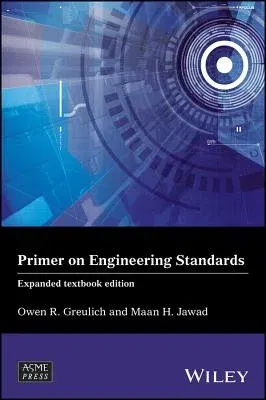A Clear, Comprehensive Introduction to Standards in the Engineering
Professions
Standards supplement the design process by guiding the designer toward
consistency, safety, and reliability. As daily life involves
increasingly complex and sophisticated instruments, standards become
indispensable engineering tools to ensure user safety and product
quality. Primer on Engineering Standards: Expanded Textbook Edition
delves into standards creation and compliance to provide students and
engineers with a comprehensive reference.
The different types of standards are dissected and discussed in terms of
development, value, impact, interpretation, and compliance, and options
are provided for situations where conformance is not possible. The
process of standards creation is emphasized in terms of essential
characteristics and common pitfalls to avoid, with detailed guidance on
how, where, and with whom one may get involved in official development.
Organized for both quick reference and textbook study, this new Expanded
Textbook Edition provides a quick, clear understanding of critical
concepts, ramifications, and implications as it:
- Introduces the concepts, history, and classification of standards,
rules, and regulations
- Discusses the federal, state, and local government's role in standards
development and enforcement
- Distinguishes voluntary consensus standards, limited consensus
standards, and jurisdictional versus non-jurisdictional government
standards
- Covers the need for and process of exemptions to existing standards
- Examines the characteristics of a good standard, and discusses
opportunities for involvement in development
- Includes case studies to demonstrate standards applications, and
extensive appendices to direct further inquiry
The successful design, fabrication, and operation of any product relies
on foundational understanding of pertinent standards; indeed, standards
and guidelines form a central pillar of the engineering profession. This
helpful resource goes beyond a list of rules to help students and
practitioners gain a better understanding of the creation, import, and
use of standards.

